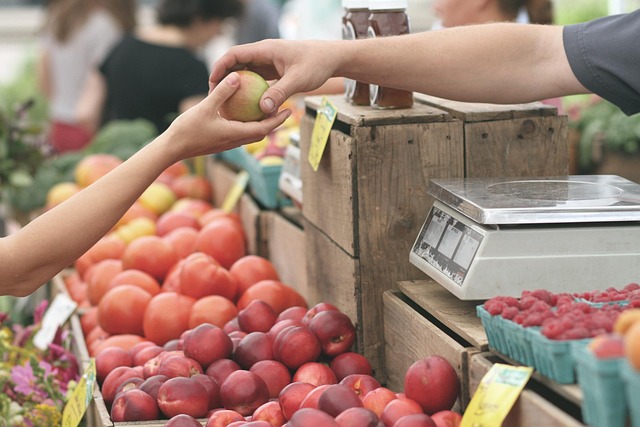Local food delivery and meal preparation services are adapting to rising food allergy and intolerance concerns by offering tailored, safe options. They implement dedicated allergen-free zones, strict cleaning, and cross-contamination prevention, ensuring gluten, dairy, nut, and other allergens are avoided. These practices, combined with efficient delivery logistics, make dining accessible for all, fostering inclusive culinary experiences through customized menus.
In today’s diverse culinary landscape, catering to unique dietary needs is more essential than ever. Food allergies and intolerance are on the rise, demanding innovative solutions. This article explores strategies for navigating these challenges, focusing on two key aspects: understanding food allergies and intolerances, and employing local food delivery services and effective meal preparation techniques to accommodate special diets. By delving into these areas, we aim to enhance inclusivity and ensure everyone enjoys a safe and enjoyable meal.
- Understanding Food Allergies and Intolerance
- Local Food Delivery Services for Special Diets
- Meal Preparation Techniques to Accommodate Allergies
Understanding Food Allergies and Intolerance

Food allergies and intolerance are growing concerns in today’s diverse culinary landscape, demanding increased awareness and tailored solutions. These conditions can range from mild discomfort to severe, life-threatening reactions, making it imperative for both individuals and food service providers to be well-informed. Understanding these differences is key to creating inclusive experiences, especially with the rise of local food delivery and meal preparation services.
Allergies are typically immune system responses to specific proteins found in foods, while intolerance often involves the digestive system’s difficulty in processing certain substances. Recognizing these nuances enables businesses offering local food delivery or meal prep to cater to diverse needs effectively. By implementing sensitive handling practices and providing clear, detailed information on menus, they can ensure safety and satisfaction for customers with allergies or intolerances.
Local Food Delivery Services for Special Diets

In today’s digital era, local food delivery services have revolutionized the way we access meals tailored to our specific dietary needs. These platforms offer a convenient solution for individuals with food allergies or intolerances, providing a wide range of options that cater to special diets. With just a few clicks, users can now discover and order meals prepared according to their requirements, ensuring a safe and enjoyable dining experience.
Meal preparation services play a crucial role in this trend, as they specialize in creating fresh, customized dishes for various dietary restrictions. From gluten-free and vegan options to those avoiding specific allergens, these local delivery services have become game-changers for folks with special dietary considerations. By offering personalized menus, they foster inclusivity and enable individuals to explore a diverse culinary landscape without compromise.
Meal Preparation Techniques to Accommodate Allergies

When it comes to accommodating food allergies and intolerance in meal preparation, local food delivery services play a pivotal role. These services are equipped to tailor meals according to specific dietary needs, ensuring that individuals with allergies or sensitivities can still enjoy delicious and safe food options. Through careful ingredient sourcing and meticulous kitchen practices, local delivery services create menus that cater to various restrictions, including gluten-free, dairy-free, nut-free, and more.
In-house meal preparation techniques are crucial in achieving this level of customization. Kitchens implementing dedicated allergen-free zones, regular deep cleaning, and cross-contamination prevention measures ensure that allergy-friendly meals remain separate from potential triggers. This includes using separate utensils, containers, and cooking equipment for allergic and non-allergic foods to prevent any accidental exposure. By combining these practices with a robust understanding of local food delivery logistics, service providers can offer personalized meal solutions, making dining out or receiving deliveries accessible and enjoyable for everyone, regardless of dietary constraints.
Accommodating food allergies and intolerances is no longer a niche consideration but a vital aspect of modern dining. By understanding these conditions, leveraging local food delivery services tailored for special diets, and adopting effective meal preparation techniques, restaurants can create inclusive experiences for all patrons. These strategies not only enhance customer satisfaction but also contribute to a more diverse and welcoming culinary landscape.














